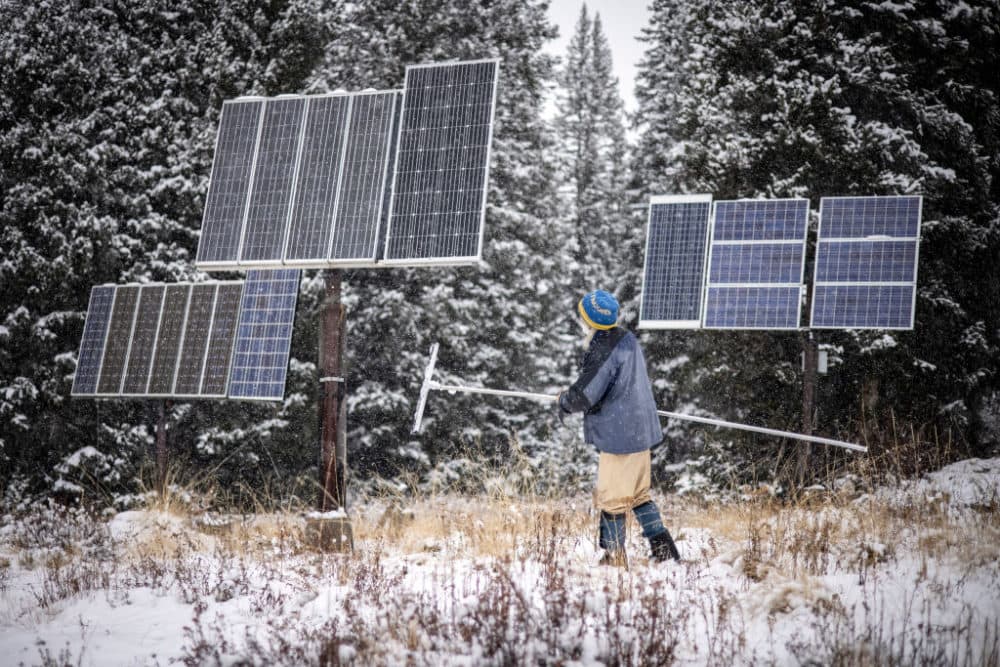Advertisement
Commentary
Artificial intelligence is a powerful tool. But in the climate fight, humans still reign supreme

If you ask ChatGPT, the text-generating artificial intelligence in the news recently, to write a limerick about artificial intelligence (AI) and climate change, you'll get something like:
With algorithms precise and so neat,
AI can tackle earth's climate defeat,
Reducing carbon's strife,
Bringing balance to life,
It's a hero in our planet's heat!
You'll be the judge of the poetry, but the underlying technology speaks for itself. Machine learning is producing impressive results, and, for better or worse, researchers are now using it to address the climate crisis.
For example, Microsoft Research just announced Climax, a machine-learning model built for climate forecasting. Based on artificial neural network technology, ClimaX promises the capability to digest the prodigious amount of data that satellites and other weather sensors are now producing.
Climate modeling has been around for decades, but the methodologies have fundamentally shifted. Previously, programmers encoded explicit physical laws, and the simulations worked by solving sets of mathematical equations. Those models, while still applicable, are computationally expensive and don't readily scale.
The newer software, such as ClimaX, is data-driven. Engineers train the model with historical weather data that the program then analyzes to construct the algorithmic engine, often a neural network, which is modeled loosely on the human brain. The same basic approach was used to build ChatGPT, which its developers trained on with immense amounts of text.
This kind of machine learning will be indispensable as more renewable energy sources become more widely available go online. The intermittency of solar and wind power presents a tough challenge for grid operators, who must continuously balance electricity generation and consumption around the clock and under all weather conditions. Compared to older technologies, machine-learning models are more adaptable to the vast amount of information involved in managing electric grids with diverse, dynamic power sources.
AI models can reveal relationships and correlations within complex data that are not detectable by humans. Building managers use them to control heating, cooling and lighting, which reduces carbon emissions. AI is critical for water management in areas stricken by climate-induced drought. The World Economic Forum has developed software to predict wildfires. And scientists are using machine learning to study ocean currents disrupted by warming.
Machine learning is producing impressive results, and, for better or worse, researchers are now using it to address the climate crisis.
Climate projection remains the most visible and most controversial use of AI-powered modeling. U.S. scientists just released a study based on machine learning that predicts humanity will most likely fail to limit global mean temperature to the goal set in Paris in 2015. It also foresees temperatures likely exceeding the goal of 2.0º C above the preindustrial baseline, regardless of how much emissions are reduced between now and 2050.
When news about an AI model's prediction makes headlines, it's worth asking what the forecast is and who’s making it. In the words of statistician George E. P. Box, "all models are wrong, but some are useful."
Erica Thompson is a British physicist who studies the interpretation of mathematical models. Speaking on a recent podcast, she voiced her concern about the potential for bias in the training of machine learning models. Thompson cautions that models merely encapsulate human judgments in a mathematical language, making those judgments neither more objective nor more authoritative.
Thompson questions the role of AI in making policy. Too often, modelers inject implicit assumptions that later emerge as outputs. For example, suppose a potential emission reduction strategy such as carbon capture or solar geoengineering is coded into a model. What the algorithm then generates might be understood to say those strategies are essential to meeting carbon mitigation goals, and the interpretation is justified as being "what the science says."
Machine learning will undoubtedly be invaluable for advancing technologies we need to decarbonize the world's economies but understanding its limitations and inherent fallibilities is essential. Policymakers must balance the economic and technological optimizations that AI prescribes with social and political values equally. For example, an AI model might advise a course of action requiring increased mineral extraction without taking into account the environmental cost, the impact on indigenous peoples, or the effect it would have on future generations.
The ultimate irony of using machine learning to address the climate crisis is that machine learning itself isn't climate-friendly. I asked ChatGPT about its carbon footprint, and it gave me an upfront response:
The carbon footprint of ChatGPT is likely to be significant, as the training of large language models like ChatGPT requires a tremendous amount of computational power, which in turn requires significant amounts of energy.
OpenAI, the company that created ChatGPT, is actually leading the way in using AI to fight climate change. It's auspicious that the company is fostering applications of the still nascent technological wizardry in one of our most pressing problem domains.
For that achievement, we can forgive the lousy poetry.
